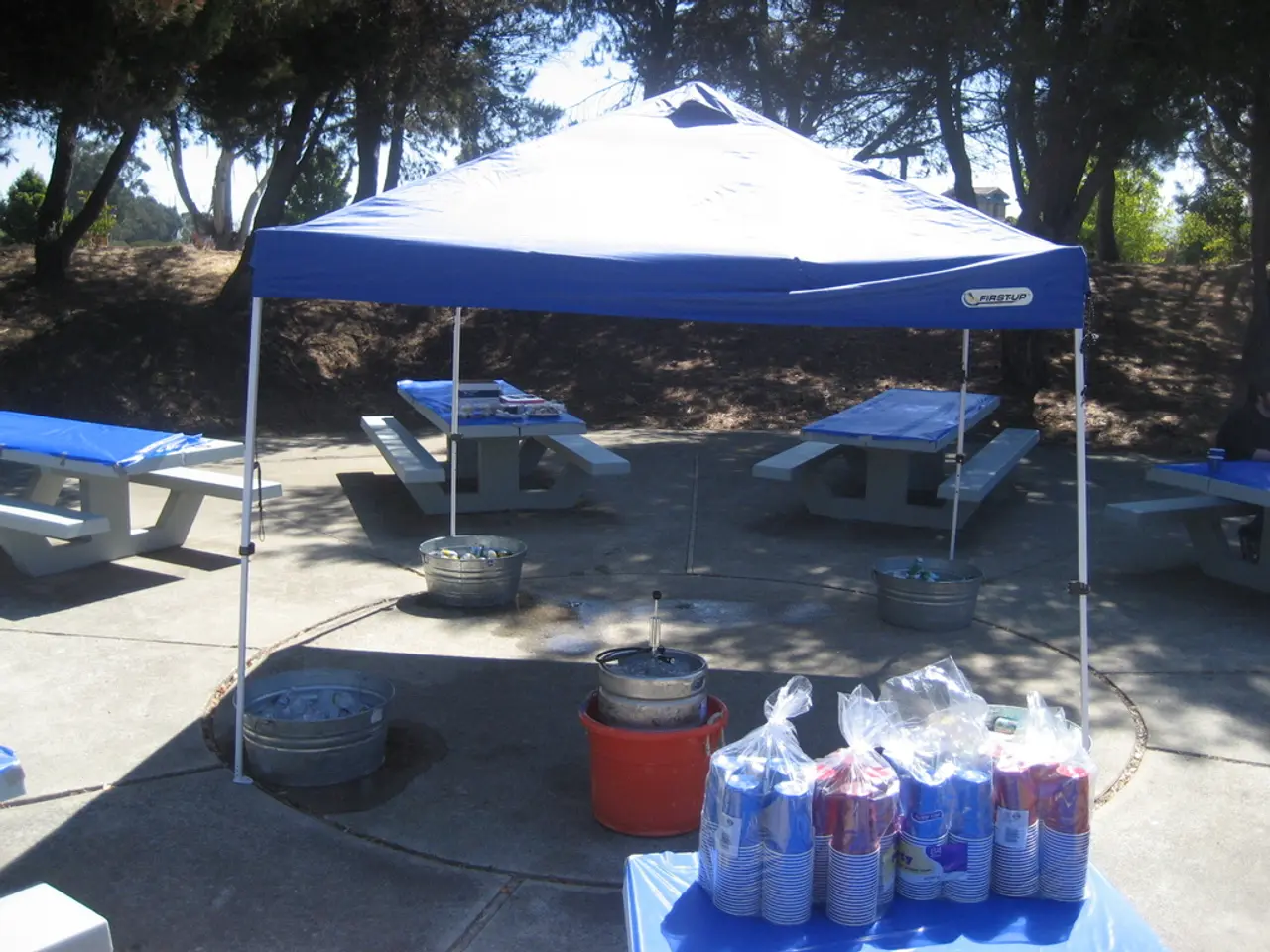Strategies for Planning a Zero-Waste Event and Sustainable Living Advice
Planning a zero-waste event is a great way to minimize your event's impact on the environment. Here are some key tips and strategies to help you organize an eco-friendly event, focusing on sustainable venues, disposable wood plates and cutlery, eco-friendly invitations, environment-friendly party favors, food and catering choices, avoiding single-use plastic, and seasonal selections.
1. Choose Eco-Friendly Venues
- Select venues that support or have existing waste sorting and recycling systems in place.
- Prefer locations that allow outdoor composting or have partnerships with local composters.
- Prioritize venues with good access to public transport to reduce travel emissions.
2. Use Disposable Wood Plates and Cutlery
- Opt for biodegradable, renewable resource-based utensils made of bamboo or wood. Bamboo, growing quickly (in just 3 years), is particularly sustainable.
- Wooden cutlery can also be recycled into other products like paper or furniture, making it a better alternative to plastic.
3. Sustainable Invitations
- Avoid paper invitations; use digital invitations to reduce paper waste.
- If physical invites are necessary, use recycled paper or seed paper invitations that guests can plant afterward.
4. Environment-Friendly Party Favors
- Choose favors that are edible (like homemade treats wrapped in reusable cloth bags) or locally sourced.
- Consider experiential favors such as donations to charities or vouchers for experiences instead of physical items.
- Avoid single-use plastic packaging for favors; use reusable or compostable materials instead.
5. Food and Catering Choices
- Support local, organic, and seasonal food vendors to minimize carbon footprints and encourage sustainable agriculture.
- Avoid pre-packaged snacks; buy in bulk and serve in reusable or compostable containers.
- Arrange for leftover food donation or encourage guests to take leftovers in reusable containers.
- Provide options for vegetarian or vegan meals, reducing the environmental impact of meat production.
6. Avoid Single-Use Plastic
- Eliminate single-use plastic cutlery, plates, cups, and straws.
- Use reusable or compostable alternatives such as the bamboo/wood options mentioned or compostable cups made from sustainable materials.
- Use bulk drink stations with refillable containers instead of individual plastic bottles.
- Provide well-labeled bins for compostable, recyclable, and landfill waste at multiple locations with trained staff to guide proper waste sorting.
7. Seasonal Choices
- Plan events around the availability of local seasonal produce to support sustainable food sourcing.
- Use natural, seasonal decorations like fresh flowers or edible garden herbs instead of plastic decor.
- Opt for decorations made from reusable or recycled materials, including renting decor for larger events.
Additional Practical Tips
- Implement clear waste sorting systems with signage and staff support.
- Prepare logistics for waste recovery: composting, recycling, and donation routes ahead of the event.
- Measure and communicate results: weigh waste, calculate savings, and collect attendee feedback to improve future events.
- Keep a limited emergency stock of disposable supplies, but maintain focus on waste reduction goals.
This comprehensive approach ensures your event minimizes waste and environmental impact across all aspects, from venue and materials to food and favors.
If you're looking for specific tools or supplier recommendations (e.g., for wooden cutlery or compostable cups), feel free to ask!
By choosing contemporary disposable wood plates and cutlery, selecting a sustainable venue, and making party favors at home, you can help organize a zero-waste event and reduce pollution.
- In addition to considering sustainable venues, it's essential to prioritize eco-friendly catering options, such as those that support local, organic, and seasonal food vendors to minimize carbon footprints and encourage sustainable agriculture.
- To further reduce waste, one can opt for homemade treats wrapped in reusable cloth bags as party favors instead of traditional, single-use plastic items.
- In the realm of fashion-and-beauty and healthy-living, choosing sustainable food-and-drink alternatives like compostable cups made from sustainable materials can contribute to a more eco-friendly lifestyle.
- Rather than using paper invitations, utilizing digital invitations is a great way to reduce paper waste, subsequently promoting a paperless, sustainable lifestyle at home-and-garden.
- Embracing environmental-science concepts, such as composting food waste and recycling materials, can help facilitate a lifestyle of sustainable-living and healthy-cooking.





